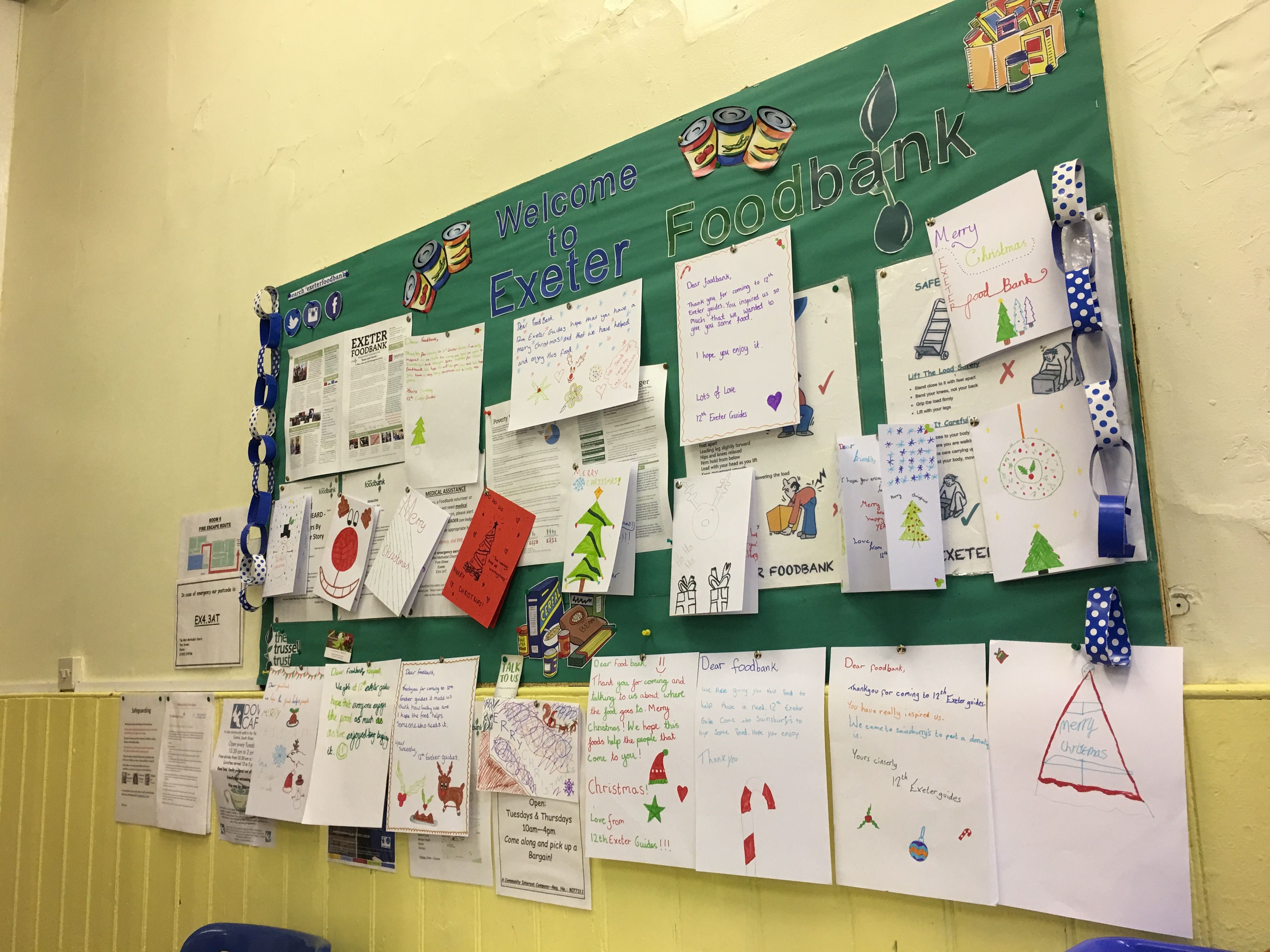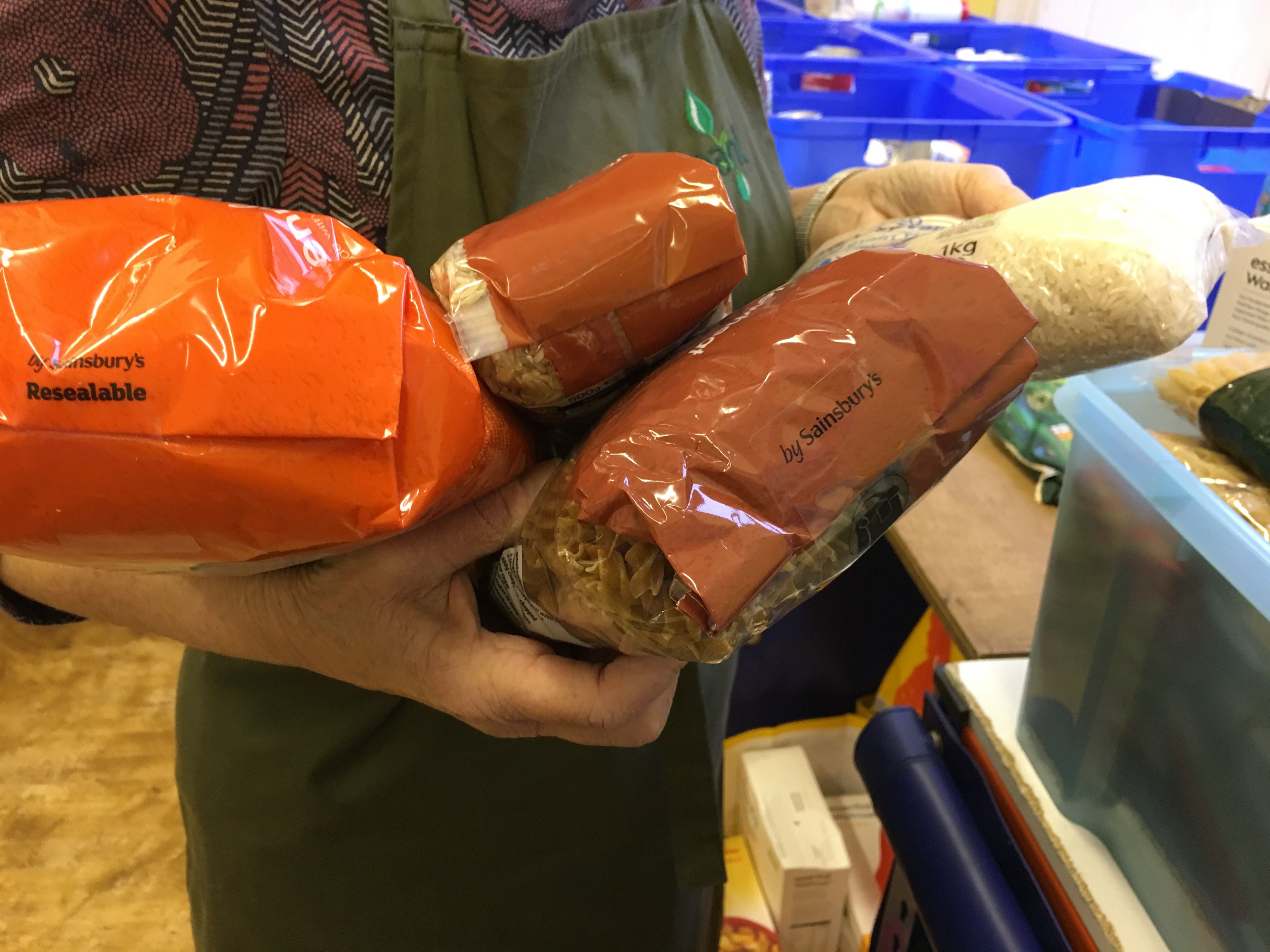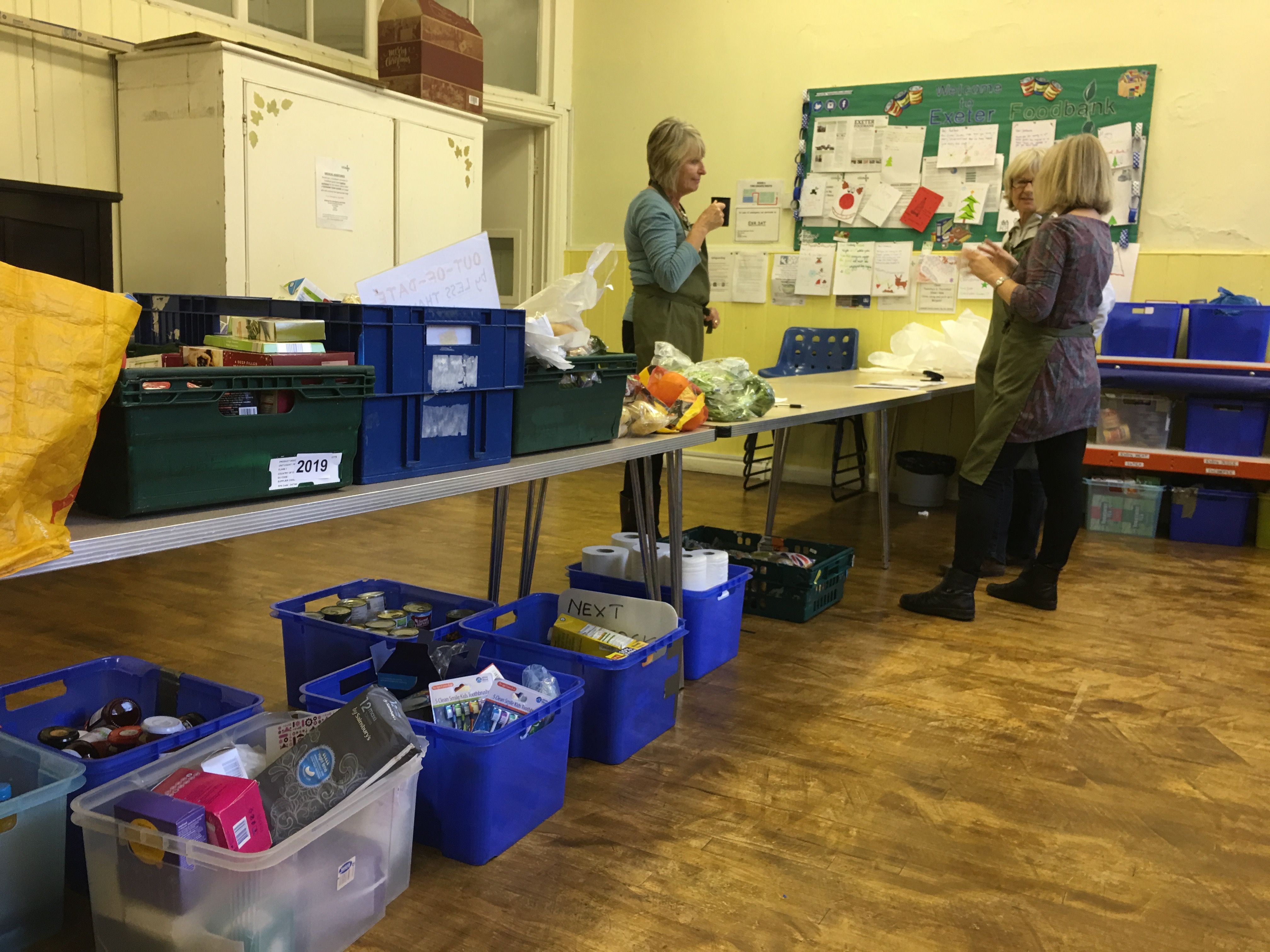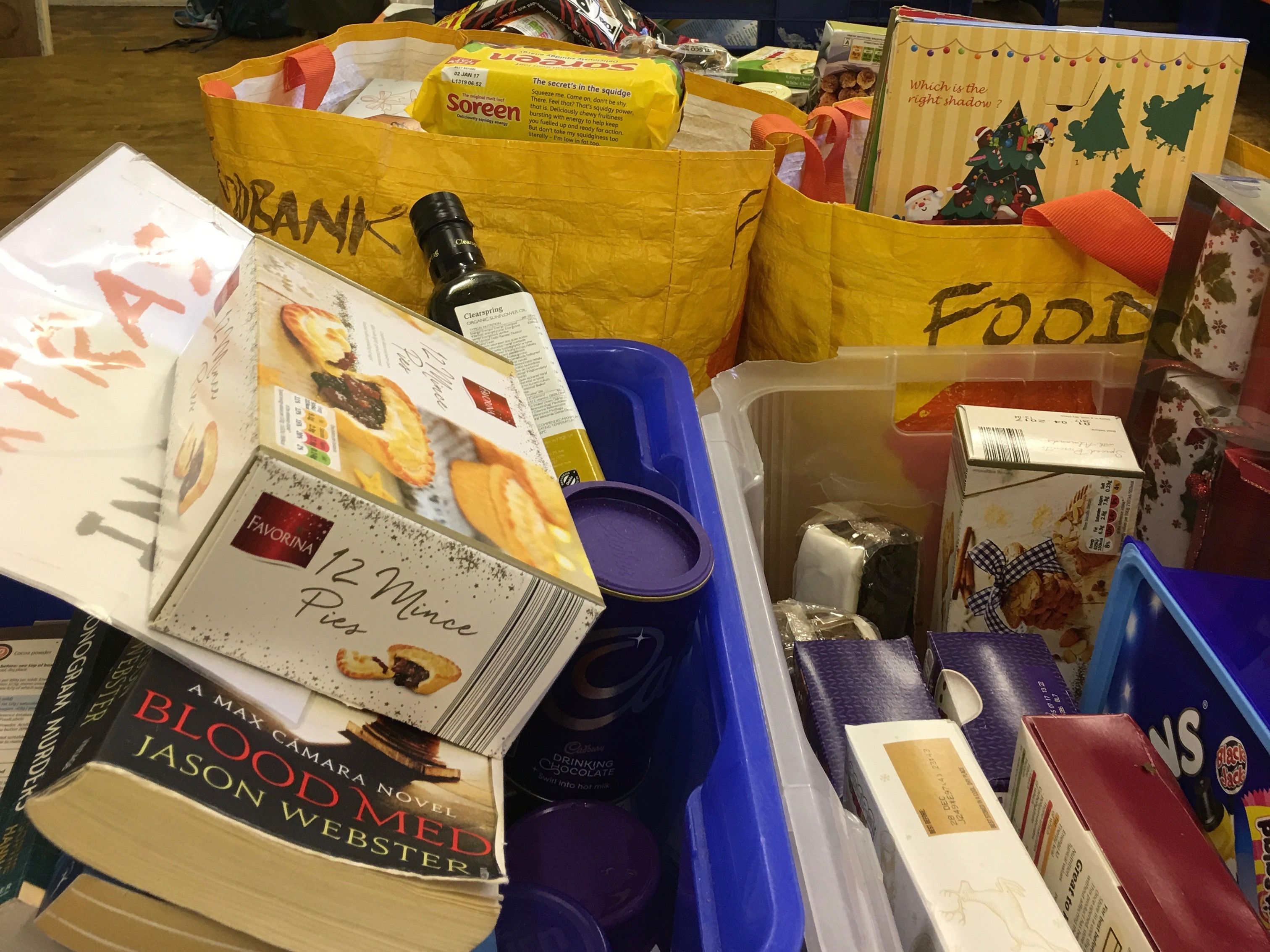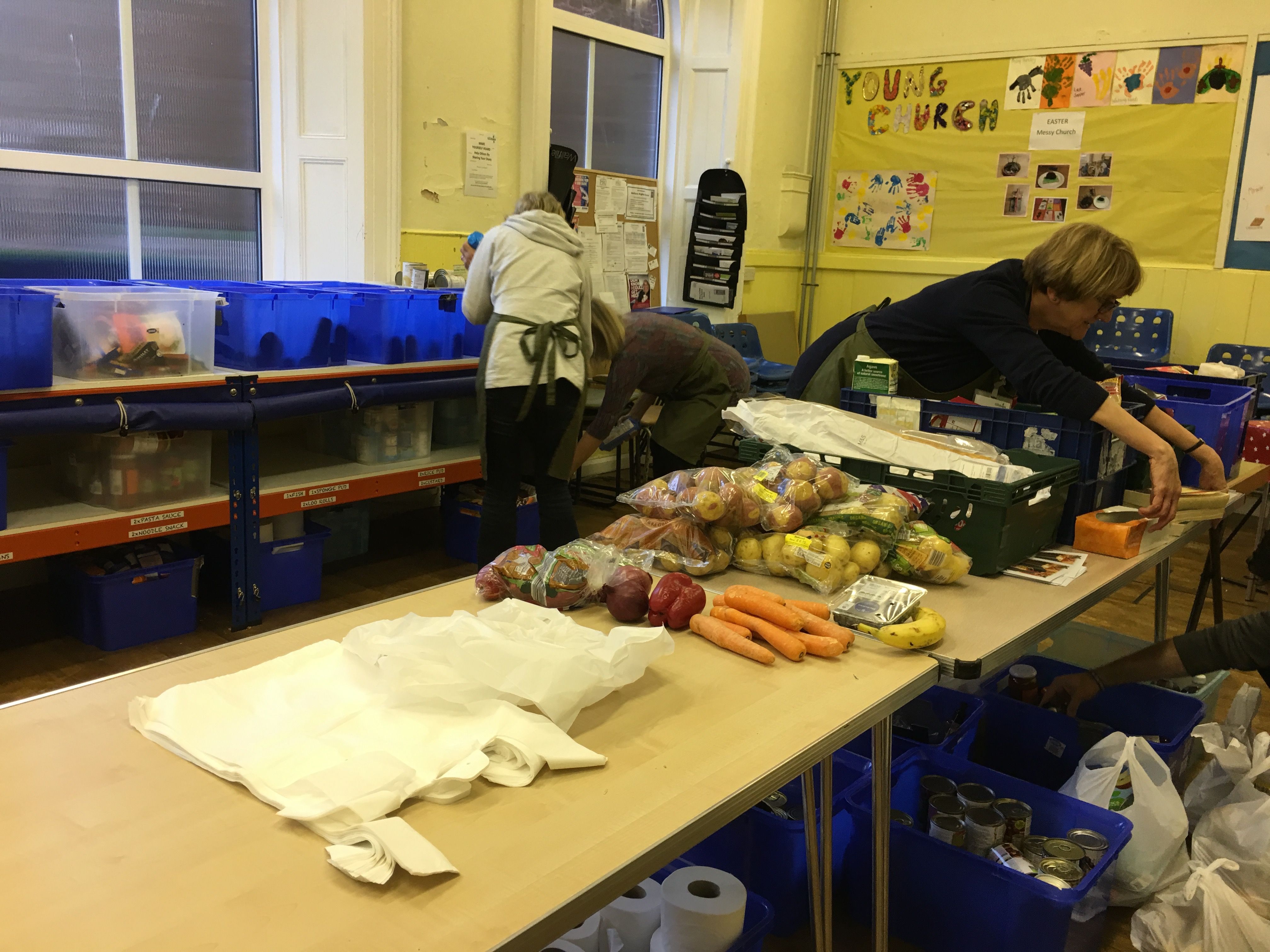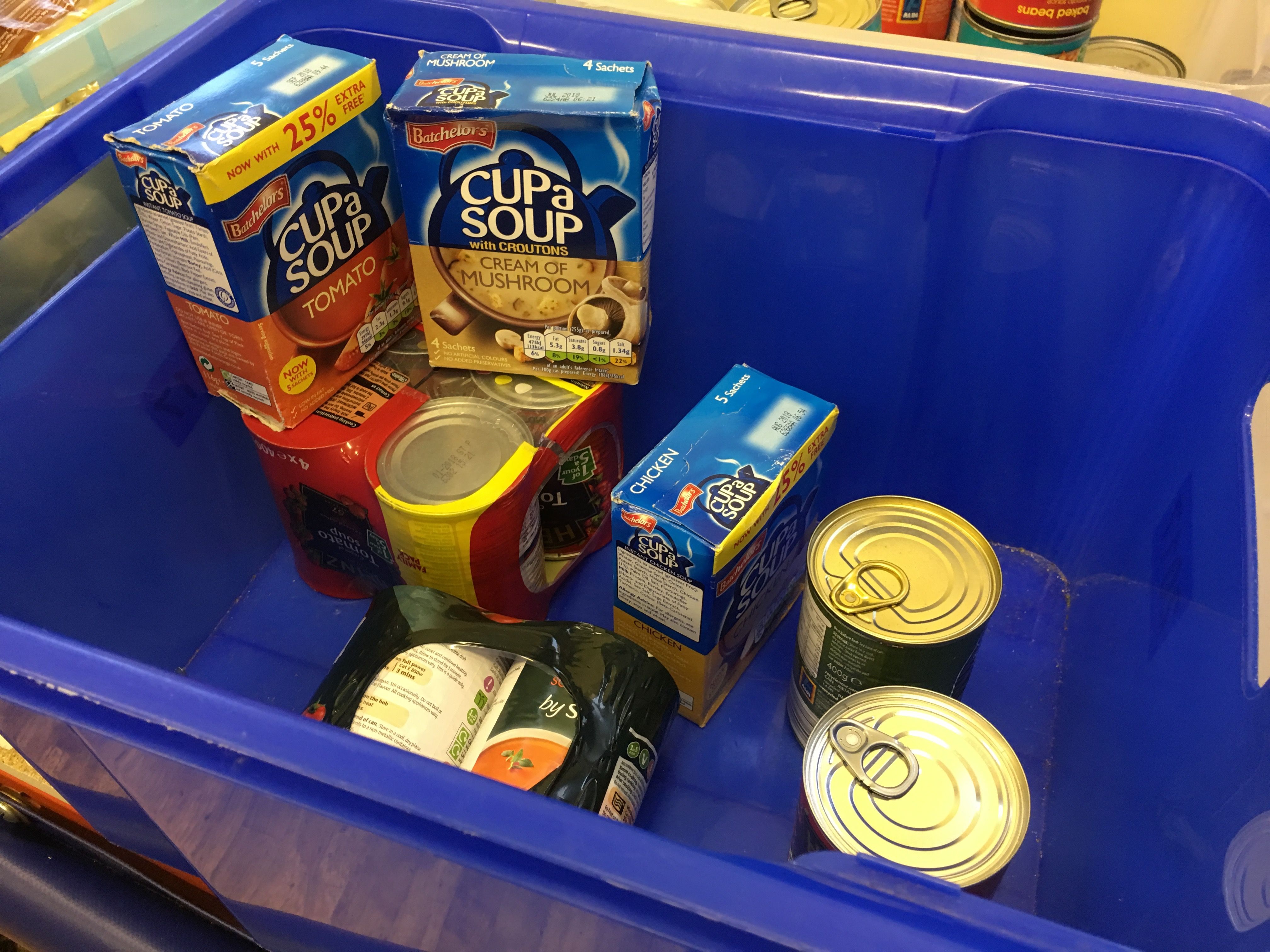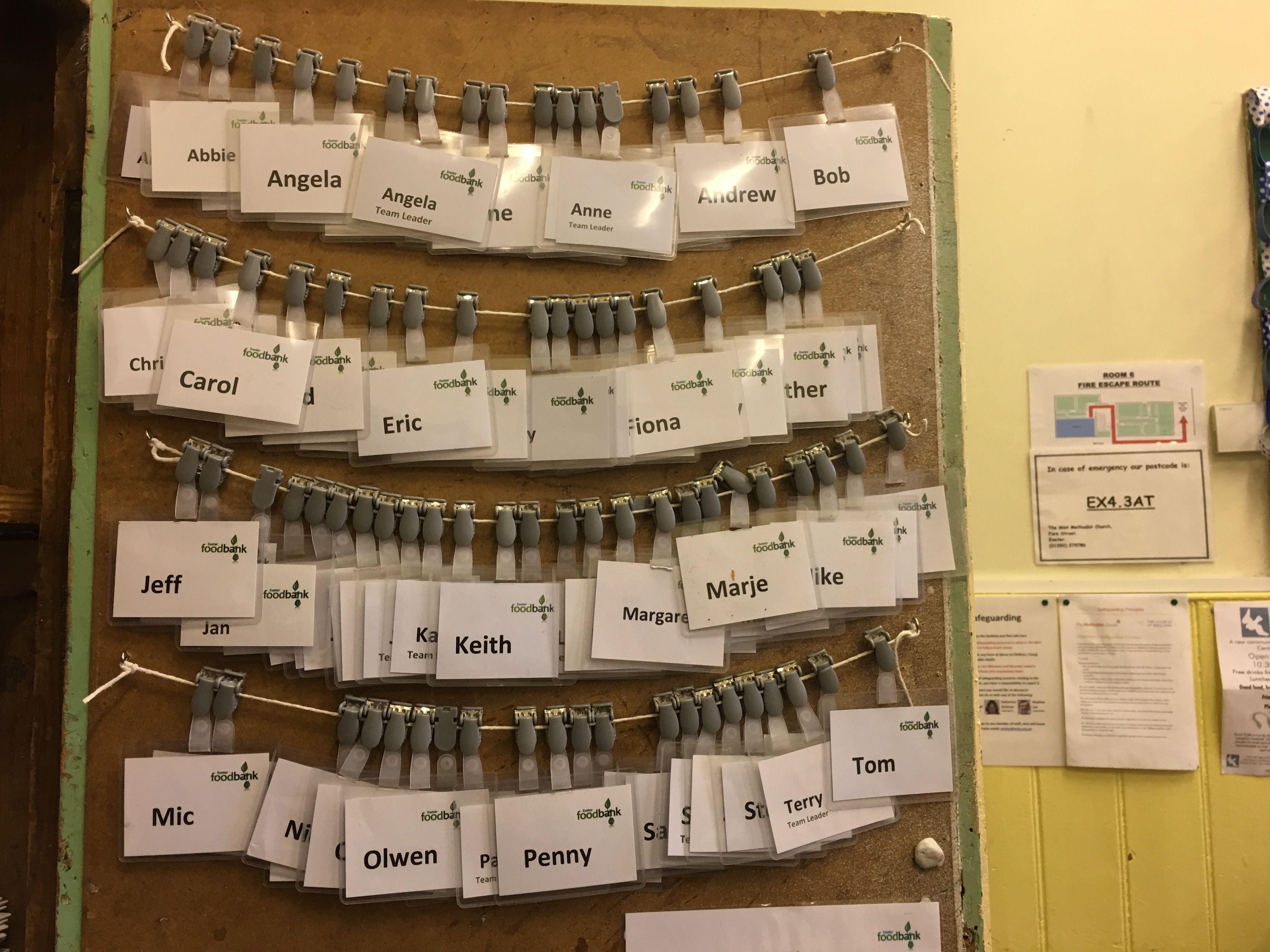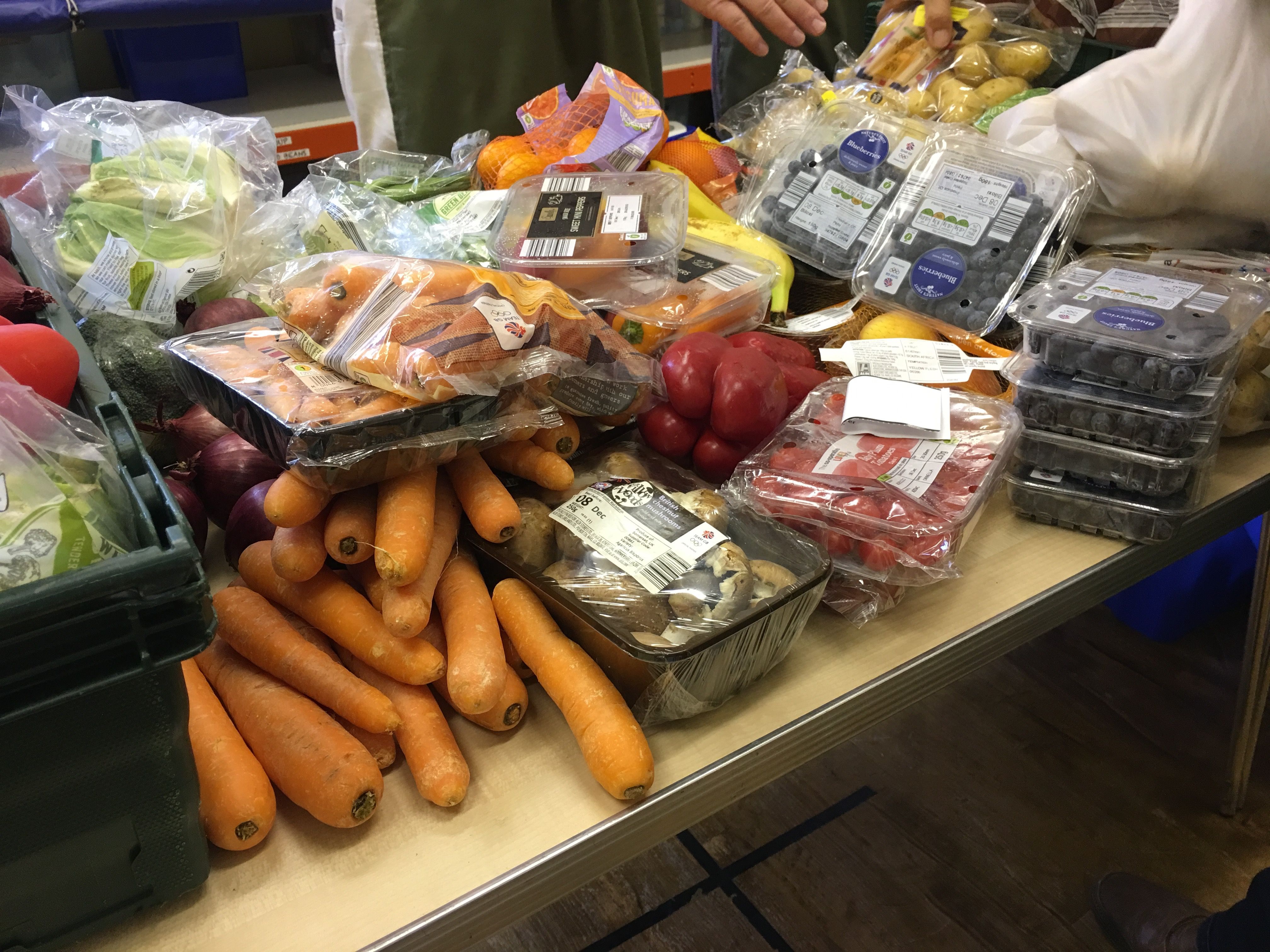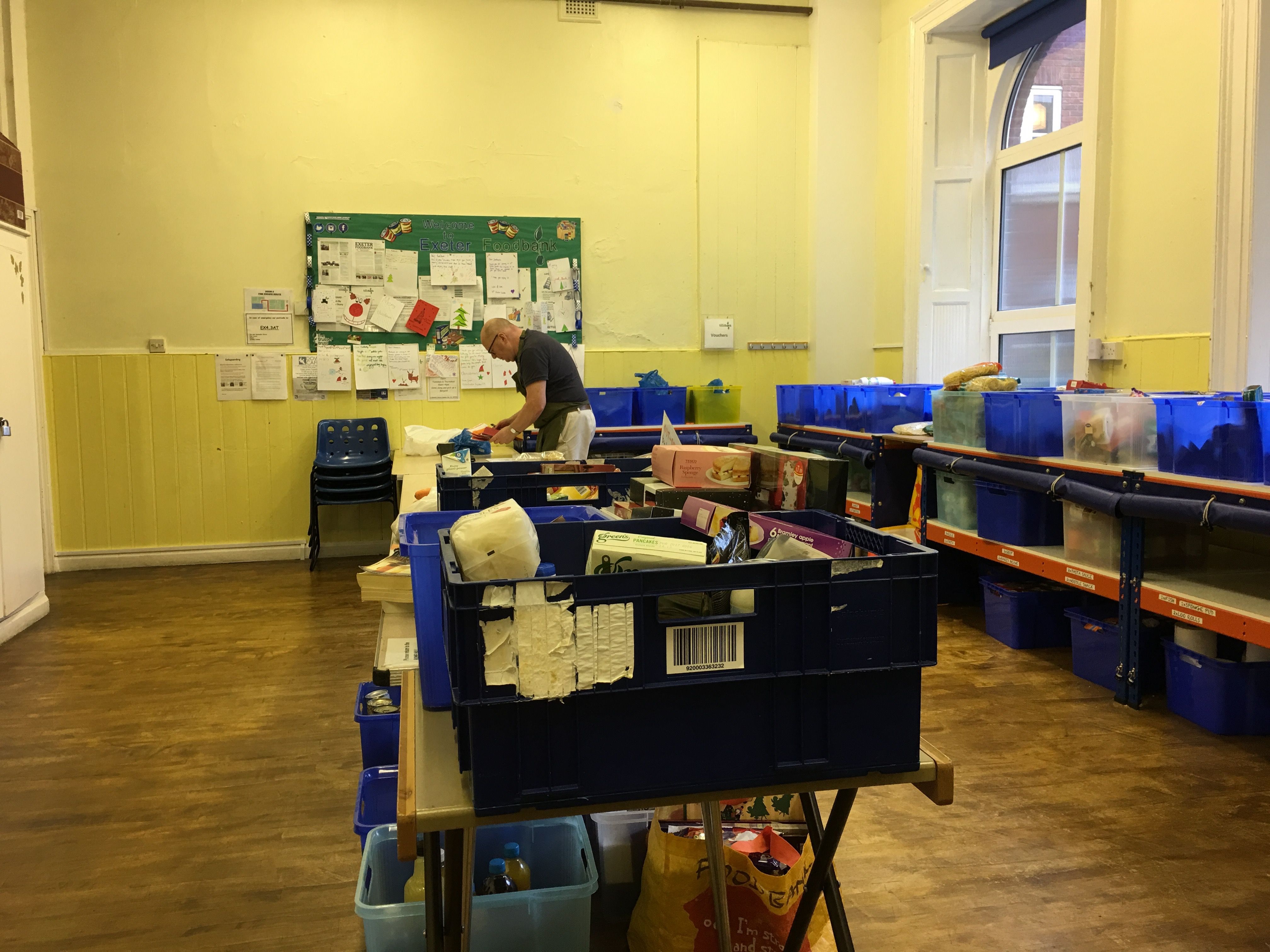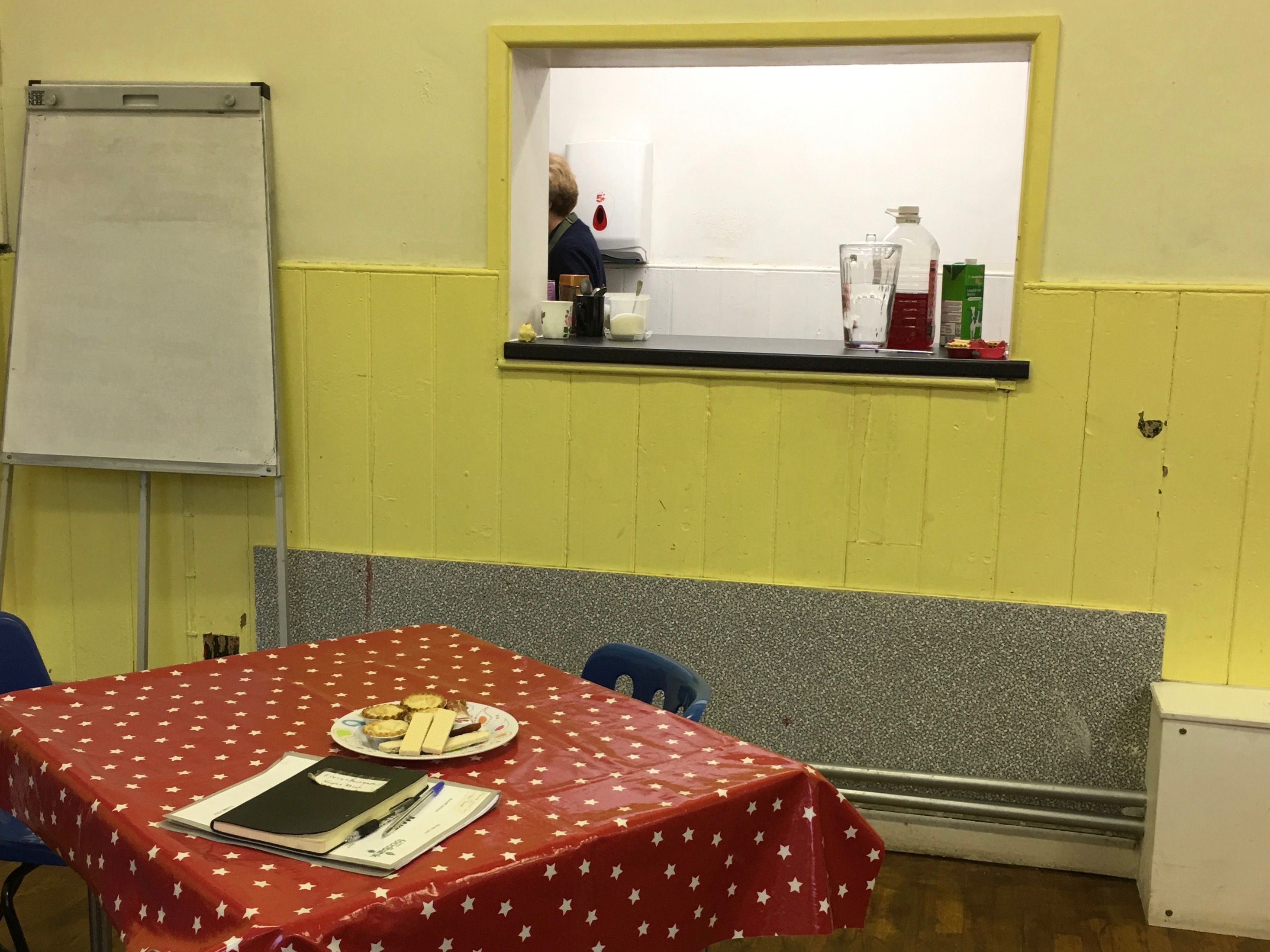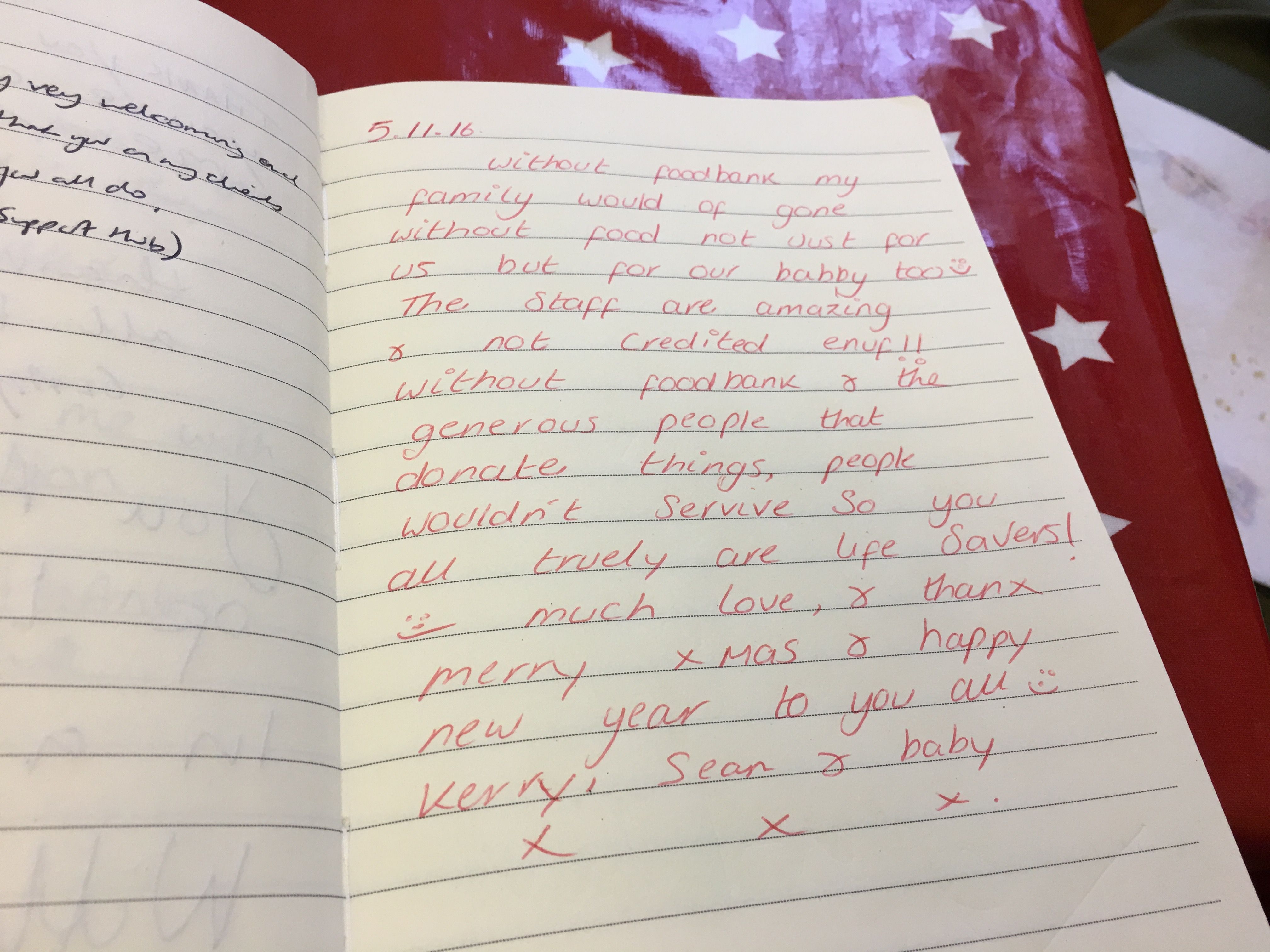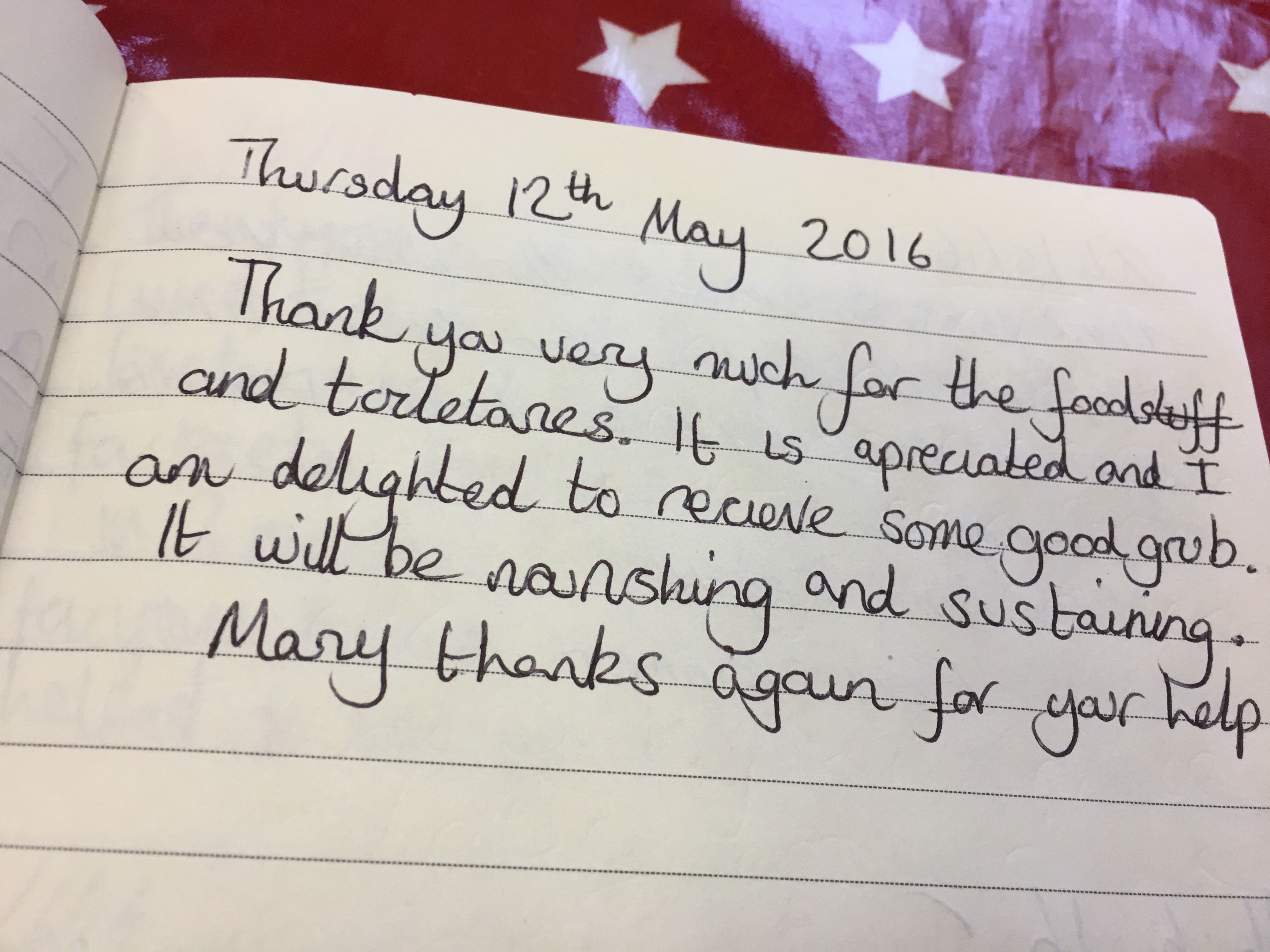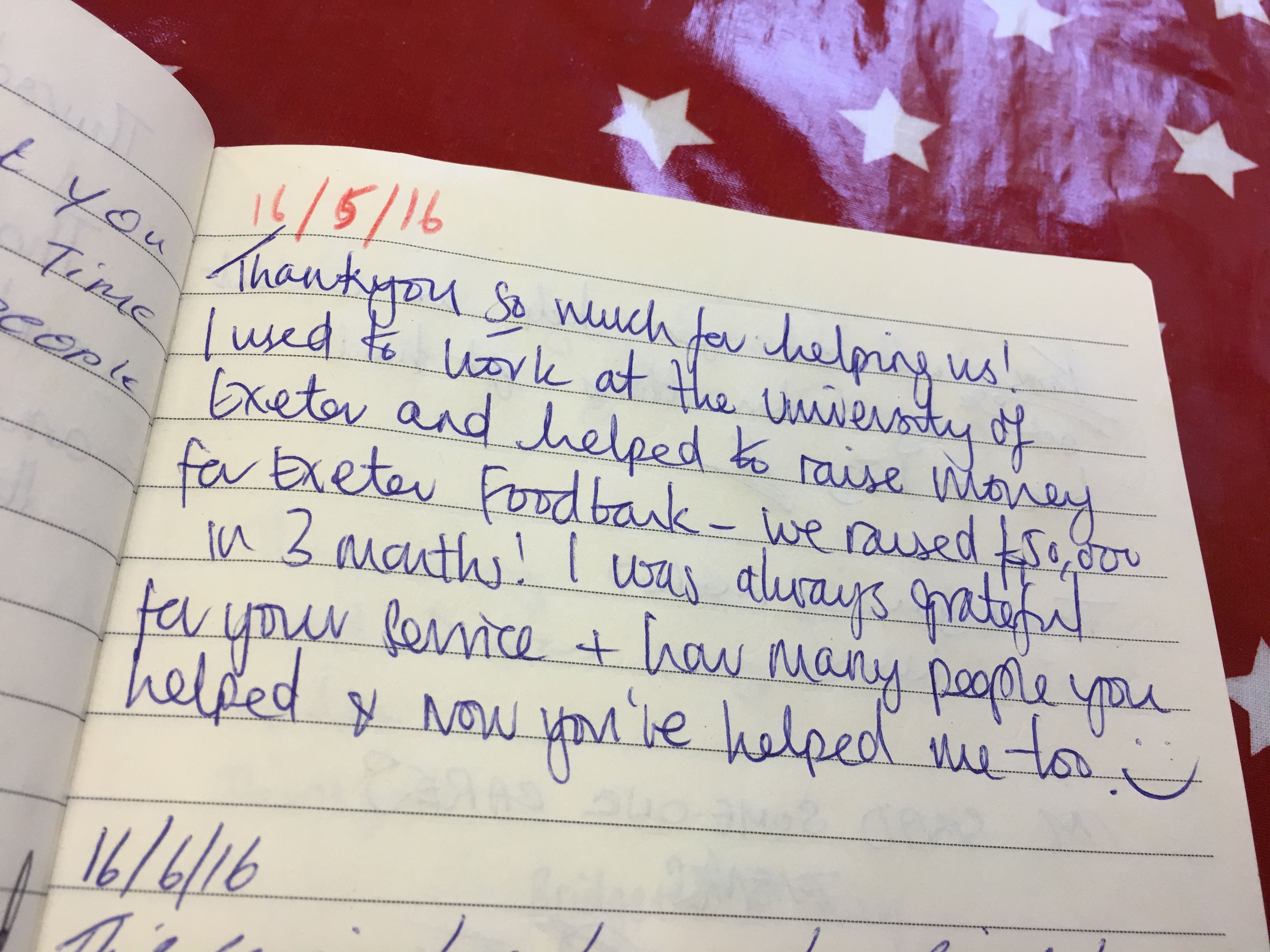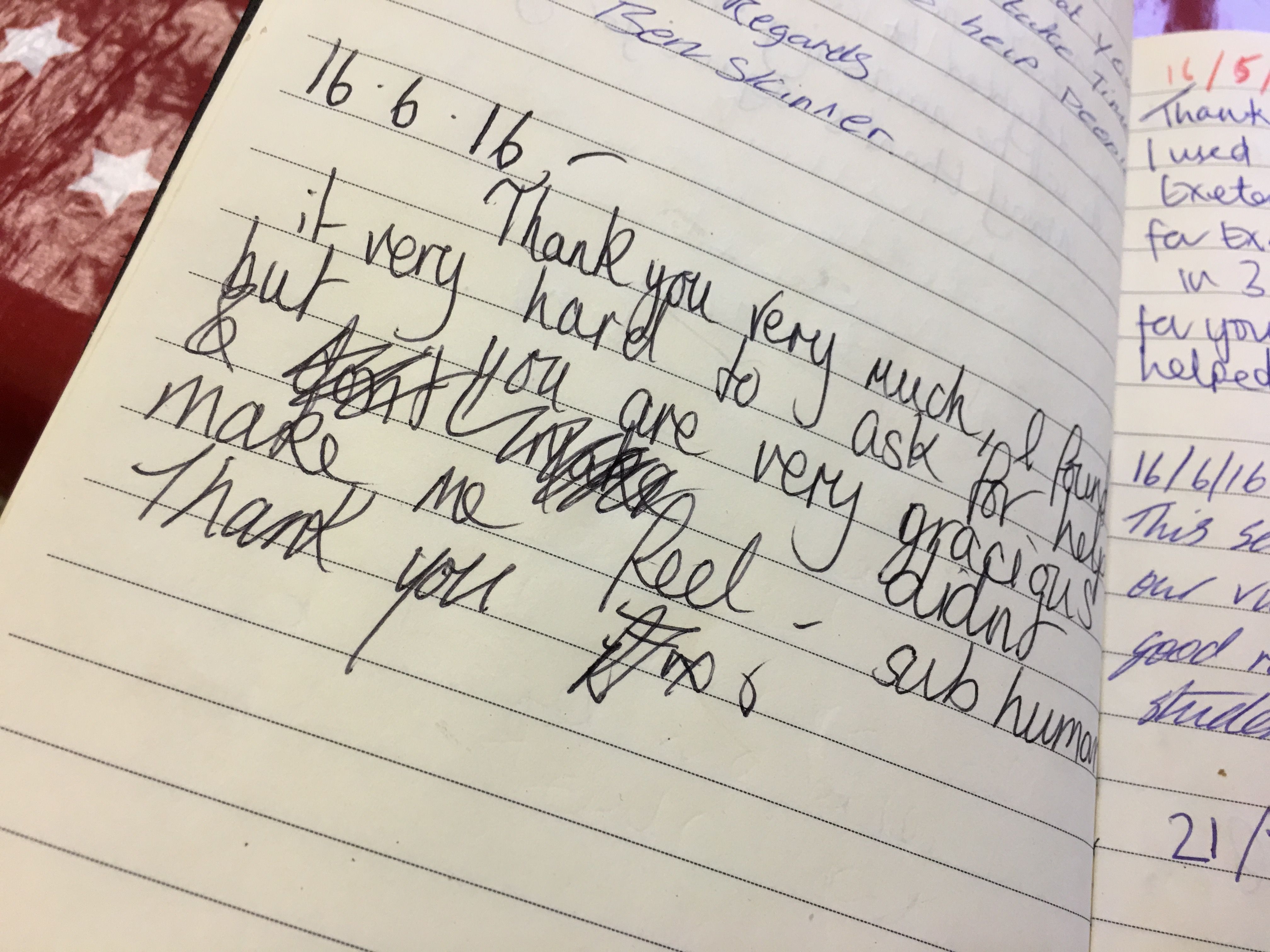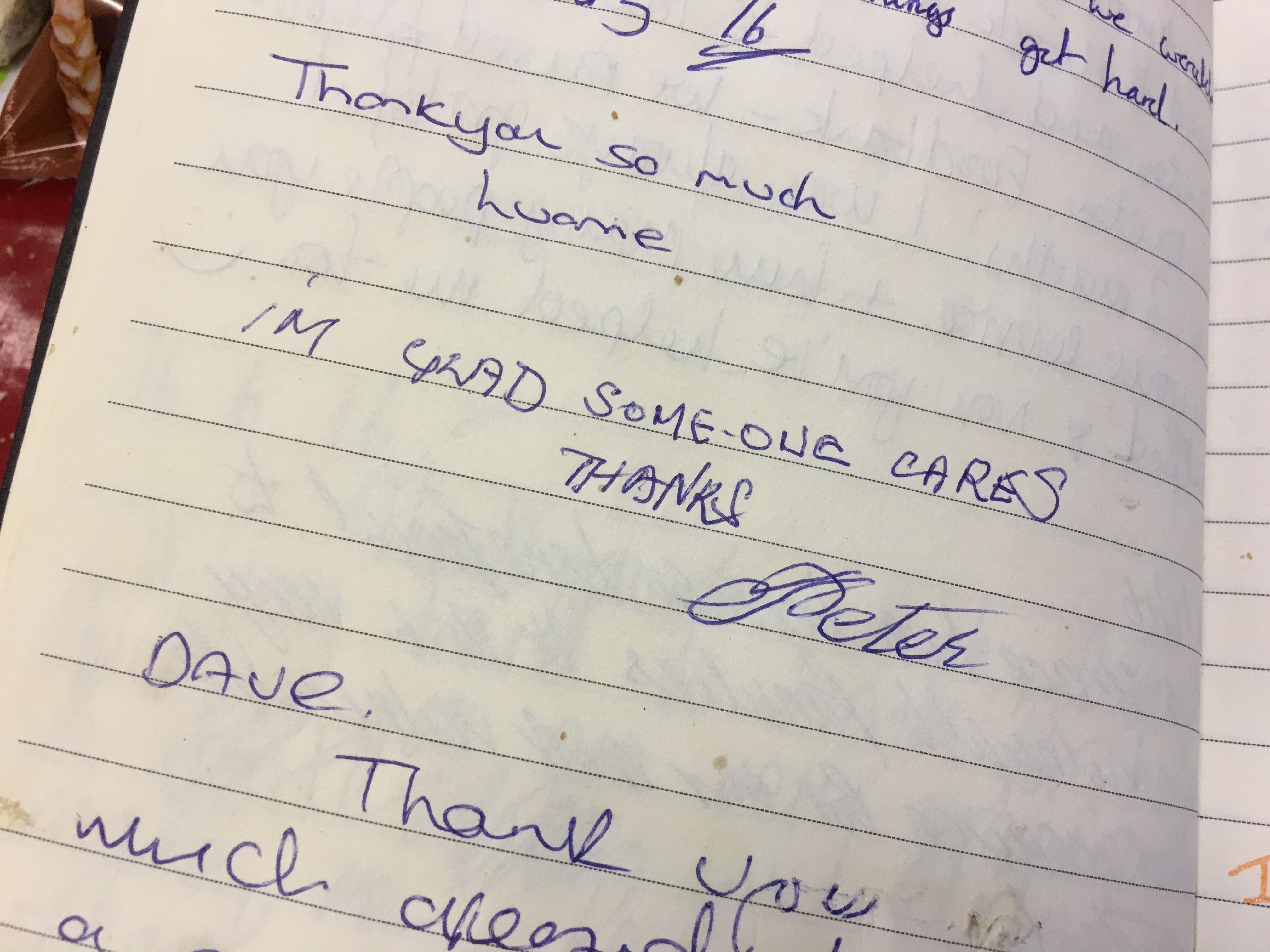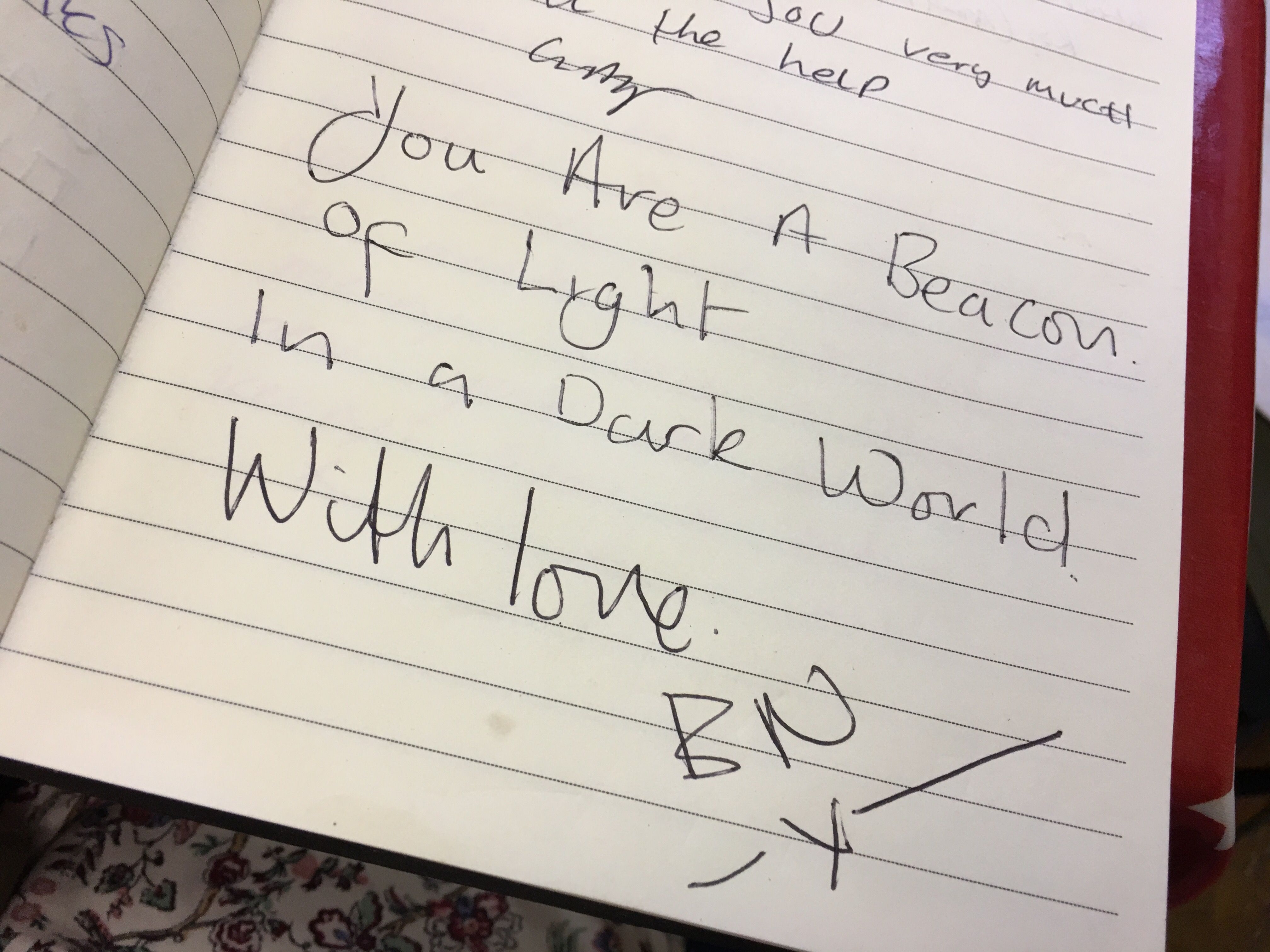Anyone from the small city of Exeter in South West England would proudly tell you about the grand cathedral, the winding cobbled side streets or the peaceful Quayside, where the smell of fish and chips wafts through the salty air. But for those locals relying on the Exeter Food Bank, the city is a very different place.
The food distribution sessions are operated from a small hall on the basement level of a local Methodist church. Compared to the dark December day outside, the fluorescent lights and bright blue boxes seem almost lurid. Long tables covered with donations line the edge of the hall, while volunteers donning professional-looking green aprons busily re-stock and organize the food.
A rich smell of coffee fills the room and plates of biscuits and mince pies are laid out on coffee-shop style tables; sometimes clients are so hungry they simply cannot wait to get home to eat. An impressive array of fresh fruit and vegetables sits next to the tins of soup and packets of pasta—there is even a box of Advent Calendars for children.
Wearing smart jeans and a soft gray sweater, Nigel Brown (not his real name) sits quietly on his phone amid the bustle of the distribution session. He has been relying on the Food Bank for just over a year and breaks every stereotype of a client—though really there is no “standard” client. He also represents how easily, and how quickly, anyone could be put in his position.
“I had my own gardening business—private gardens, week-to-week or month-to-month work. Then I got a contract with Exeter City Council which gave me seven different areas to work in—so I could work in all seasons. It was all going well, then one of the jobs—at the allotments on Ashford Road—I was trying to take this tree over and unfortunately the tree split and fell on me.”
Brown suffered deep cuts and bruises on his head and a lot of swelling—he still suffers from some memory loss. After a few days he was let out of the hospital, but was hit by a delayed severe concussion causing him to fall down the stairs in his home. He fractured his lower back, broke two bones in his left hand, caused more damage to his head, triggering severe tinnitus.
“Things were slipping because I was dealing with so much pain, and the ringing in my head was driving me nuts. I wasn’t diagnosed with tinnitus, just concussion. I kept asking people, ‘Can’t you hear it?’ It was like loud music to me—I couldn’t believe people couldn’t hear it. I actually thought I was going mad.”
To help, Brown turned to alcohol. He shakes his head, “I found if I was getting drunk I was trying to steadily get myself to sleep, ‘cos that’s the one thing I was struggling with. And it slipped: I just started drinking and got myself in a state.”
Physically, he was suffering too. “I couldn’t get upstairs, couldn’t get in the bath because I couldn’t get out again, my balance was awful. I was getting more and more stressed and upset about it, and the drinking was still going on but I wasn’t dealing with it.”
Eventually, he sought help from RISE, a local support group and rehabilitation center for alcohol and drug addiction. “First when I went into it, I was in total denial—I wasn’t accepting it was a drink problem. I just said I’ve always drunk, it’s a social thing, you drink when you go get paid… So I said no, it’s a cultural thing and I can deal with it—but I couldn’t.”
Brown eventually embraced the program and was sober for nearly two years until a recent lapse. “I had another fall, and the pain was so bad in my back I literally was crying, I couldn’t get up. All I kept thinking is I’m going backwards. I’m starting to feel totally useless and arguing with family… I had to [declare] myself bankrupt, I had to make my wife bankrupt, we lost all credit, we lost all the accounts, lost all my money, we had to sell anything that had any value.” After a long, thoughtful pause, he sighs, “It was awful.”
Things reached a crisis point in 2014. “Because I never had any money and my wife was struggling to pay bills, I actually stopped eating for long periods. I was eating cereal that I’d let [my wife] see me eat, and telling her that I was eating the rest of the time—but I wasn’t. I was leaving the food for her and our daughter.”
“Since I’ve come to the food bank, I’ve started to eat properly. There’s more balanced food, more choice and we have a lot more food [overall]—it helps. I’m managing to control my tablets now and adjust when I eat or have my tea or coffee. I can balance my day out.”
Brown’s is a happy, but sadly rare, benefits success story: He won a recent tribunal to reinstate his ESA (Employment and Support Allowance) so is trying to reduce his reliance on the food bank as much as he can. Though he is still taking 19 tablets a day, he is slowly being weaned off them. He has swapped pints of beer for cups of tea and, despite being classed “high risk,” is seeking counseling. He’s also now only taking three sleeping pills a night—a reduction from the five he was previously reliant on. He also tells me that there are fresh blueberries available today, which is great as his favorite meal is breakfast.
He smiles gently, stirring his mug of coffee. “At the moment, I’m in the right place—I’ve just got to keep with the program.”
